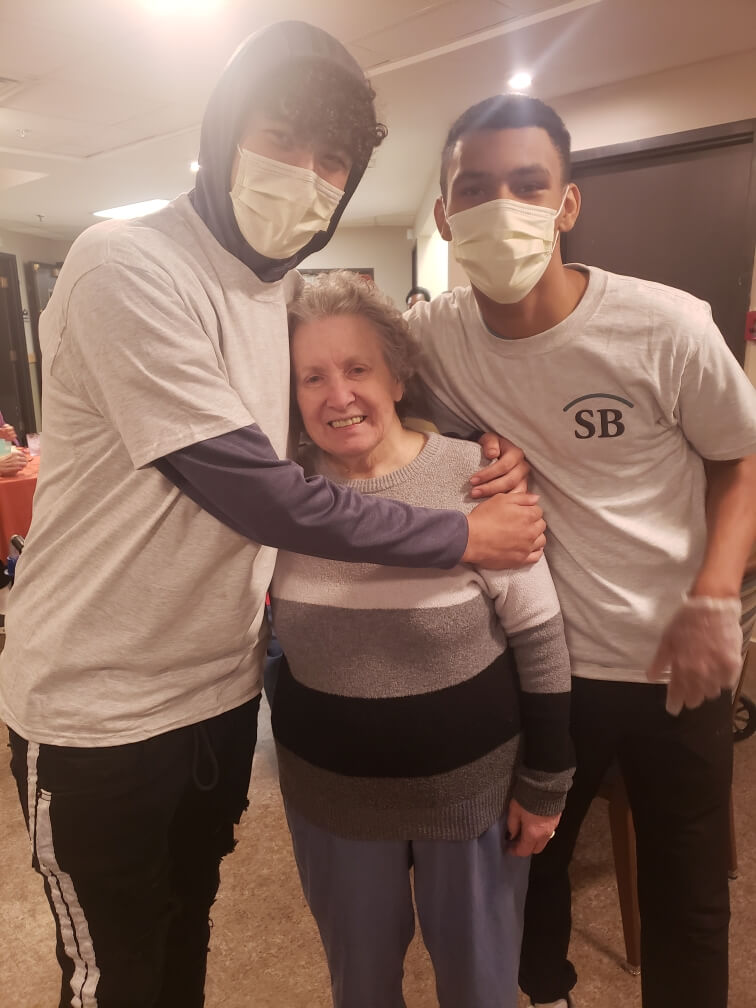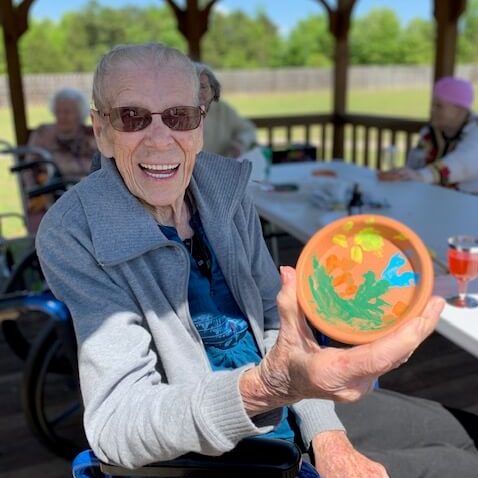
Caring for an aging parent is perhaps one of the more difficult responsibilities we’re faced with as adults. There are a lot of factors involved like cost, well being, frequency of personal care and availability.
Plus, add on top of that a layer of emotion and it becomes this complex situation that needs to be approached thoughtfully.
Deciding to have someone else provide care for your loved ones is hard enough, whether it’s through a senior living or assisted living community or home care.
In order to properly make a sound decision, you must take the time to separate emotion from the reality of the situation. It will help you make the decision that’s best for those you care about the most.
What is Home Care?
This particular type of care is when a caregiver comes into the home to care for your loved ones. It allows for more independent living within the comfort of a person’s own home. Depending on the type of care that is needed will greatly depend on what type of skilled or certified caregiver that may be prescribed or that you need to select.
If a family or individual wants to maintain independence, but they may require personal care services such as bathing and help getting dressed, then home health services would be recommended to check out. This doesn’t mean that an individual necessarily needs 24 hour care, but there are a lot of options to choose from when it comes to taking care of your loved one at home.
We know this is a huge decision to make when it comes to inviting an outside caregiver into the home, but for many it’s worth it. Peace of mind and commitment to your loved one’s health is at the forefront of most of these decisions, so take your time and figure out if home care is right for you.
Is a Home Care Provider Right For My Loved Ones?
Having health care providers come to your home seems like a win-win for everyone involved, however, there are a lot of things to consider before making such a big decision.
Here are a few:
Finances
Depending on the levels of care, it may be impossible for a family member to take on this responsibility, which then leads to a more skilled person to care for your parents. This one-on-one care, especially 24 hours a day, can cost a lot more than you’d expect. In fact, according to Genworth, the average cost of in-home care is more than an assisted living facility.
Relationships

Will your parents receive enough social connection every single day? Not just with their caregiver but other friends or family members. Even as we get older, connection is crucial to our emotional and mental well being.
Maintenance
Caring for a loved one is difficult, but you’re not just taking care of them. You’re taking care of their house, too. This includes the day to day household chores and fixing anything that may break within the home. It can become a lot for a person to handle.
The decision is yours, but providing personal care for your loved ones in their own home comes with its own set of challenges and responsibilities that ultimately fall on your shoulders.
What is an Assisted Living Community?
Oftentimes assisted living communities are mistaken for nursing homes, but there is a stark difference. Nursing home residents require complete twenty-four-hour care and medical attention, while assisted living residents are more independent. The idea is that assisted living residents still have access to medical care should they need it while maintaining a healthy level of independence.
Assisted living is defined as a long-term approach to care for seniors who may need help with a combination of services that include housing, personal care and health care. Assisted living residents usually have their own apartment within the facility that helps them create a living environment personal to them.
How Do You Pay for Assisted Living?
Seniors who wish to reside in an assisted living community have a variety of options in order to help pay for the room and board, medical care, and personal care provided to assisted living residents. Here is an outline of some of the payment options to research for assisted living:
- Medicaid
- Veterans’ Programs
- State Non-Medicaid Programs
- Original Medicare/Medicare Advantage
- Social Security
Other possible options for assisted living residents include financial planning, life insurance benefits, long-term care insurance, or assisted living loans. Individuals who are seeking to be an assisted living resident have a lot of ways they can manage the costs. It also helps that assisted living communities are cheaper compared to in-home care or full care nursing homes.
Assisted living residents are also given the opportunity to select an all inclusive package or a fee for service option. This allows individuals to have more control over their financial planning and prepare for the assisted living situation that works best for them.
What Are The Different Levels of Care Within an Assisted Living Facility?
At StoneBridge Senior Living we provide four specific levels of care and services for our residents. These include memory care, skilled nursing, assisted living, and rehabilitation. Our assisted living residents have the ability to select the care and services they need on a monthly, weekly, or daily basis.
- Skilled Nursing – for our residents who need 24/7 care
- Memory Care – for our residents who require cognitive support
- Rehabilitation – for our residents who may need attention post surgery
- Assisted Living – for our assisted living residents who wish to maintain a high level of independence
Sometimes residents become a part of communities as assisted living residents but as they age require more care and attention. Our levels of care make it easy and possible for assisted living residents to increase their level of care as they need it.
Who is a Good Candidate for Assisted Living?
Determining if assisted living is right for your loved ones can be an overwhelming decision, but we’re here to help make it as easy and clear as we can. A few questions you can ask are:
- Can the potential assisted living resident walk around on their own without much help?
- Does the potential assisted living resident have a chronic condition or require insulin?
- Does the potential assisted living resident require medical attention on an on-going basis?
- Does the potential assisted living resident require rehabilitation for post-surgical procedures?
- Does the potential assisted living resident have early signs of dementia or Alzheimer’s?
If you are able to answer ‘yes’ to any of the above questions, an assisted living only community may not be the right choice for you or your loved one. Depending on their level of care needed, each assisted living resident has the ability to select specific services to help them day-to-day. True assisted living residents don’t require as much attention as other residents, but it really depends on each person.
When considering the future of long term care for you or your loved one, assisted living communities like StoneBridge are the best place to start. They can provide a solid foundation of care for assisted living residents allowing them to maintain maximum independents. Should they need care down the road, most assisted living facilities have higher levels of care that can be put into place.
Is an Assisted Living Community Right for My Loved Ones?

The questions you had to answer above should help guide this important decision, but in the long run, what’s going to be best for your family? Senior living communities have a lot of benefits and can provide some stability in several key areas for an aging parent. Consider the following:
The Cost of Assisted Living Communities
The cost of living can seem expensive, but on average most assisted living facilities cost less than home care providers, especially if the senior needs 24-hour care.
24 Hour Senior Care
Nursing care is provided through skilled staff members who get to know your family member as if they were one of their own.
Varying Levels of Care Available
Levels of care vary from person to person, but once they’re an assisted living resident they can easily shift to lower or higher levels of care, with ease. This even includes moving from a more independent living stage to one who needs more assistance.
Peace of Mind
Stress-free living is something that is hard to put a price tag on but with a senior living facility like StoneBridge, everything is taken care of. Meals, maintenance, housekeeping and laundry, personal care services, daily activities, transportation services, health care (including medication management), bathing, and so much more.
The peace of mind that comes with an assisted living facility is worth the weight that could be lifted off your shoulders. Deciding if long term care and specifically assisted living residency is right for your family can be overwhelming, but know that we are here for you when the time is right.
Feel free to contact us and a StoneBridge senior living advisor will be happy to answer any questions about assisted living you may have.